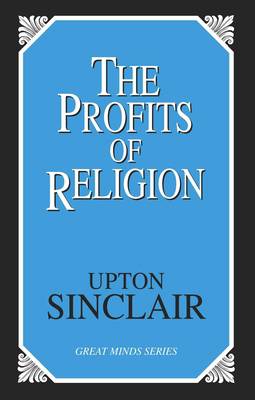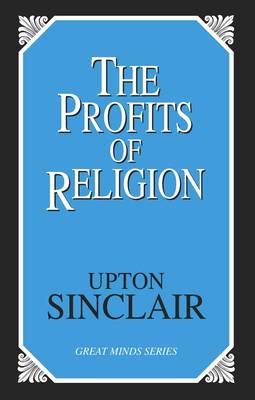
Je cadeautjes zeker op tijd in huis hebben voor de feestdagen? Kom langs in onze winkels en vind het perfecte geschenk!
- Afhalen na 1 uur in een winkel met voorraad
- Gratis thuislevering in België vanaf € 30
- Ruim aanbod met 7 miljoen producten
Je cadeautjes zeker op tijd in huis hebben voor de feestdagen? Kom langs in onze winkels en vind het perfecte geschenk!
- Afhalen na 1 uur in een winkel met voorraad
- Gratis thuislevering in België vanaf € 30
- Ruim aanbod met 7 miljoen producten
Zoeken
€ 19,95
+ 39 punten
Uitvoering
Omschrijving
This excoriating critique of religion, especially as represented by powerful clerical institutions, is a lesser-known work by the author who had earlier become famous with his publication of The Jungle, an exposT of the poor labor conditions and unsanitary practices in Chicago's meat-packing industry. More than just a tirade against religion, this is the work of an impassioned, idealistic socialist writing at the beginning of the First World War, when the notion of an international socialist revolution still seemed like a very real possibility to many of the left-leaning thinkers of the day. Sinclair's chief concern is social justice and his aim is to enlighten common people by training his critical intelligence like a sharpshooter on the many hypocrisies of established religion, which stand in the way of achieving a just society for all. More than anything he is particularly incensed by the collusion of religion with the power structure of capitalism in exploiting the poor to increase its own wealth while ignoring the obvious material needs of the less fortunate. In the end Sinclair places his faith in a "new religion" based on the known facts of human nature and on the largely untapped potential of human beings to solve their own problems through reason and science.This work, written before Sinclair and others on the American left became disillusioned with Stalin's Soviet-style socialism, offers an interesting glimpse into the intellectual currents prevalent on the left at the beginning of the twentieth century.
Specificaties
Betrokkenen
- Auteur(s):
- Uitgeverij:
Inhoud
- Aantal bladzijden:
- 315
- Taal:
- Engels
- Reeks:
Eigenschappen
- Productcode (EAN):
- 9781573928441
- Verschijningsdatum:
- 1/11/2000
- Uitvoering:
- Paperback
- Formaat:
- Trade paperback (VS)
- Afmetingen:
- 137 mm x 211 mm
- Gewicht:
- 362 g

Alleen bij Standaard Boekhandel
+ 39 punten op je klantenkaart van Standaard Boekhandel
Beoordelingen
We publiceren alleen reviews die voldoen aan de voorwaarden voor reviews. Bekijk onze voorwaarden voor reviews.









